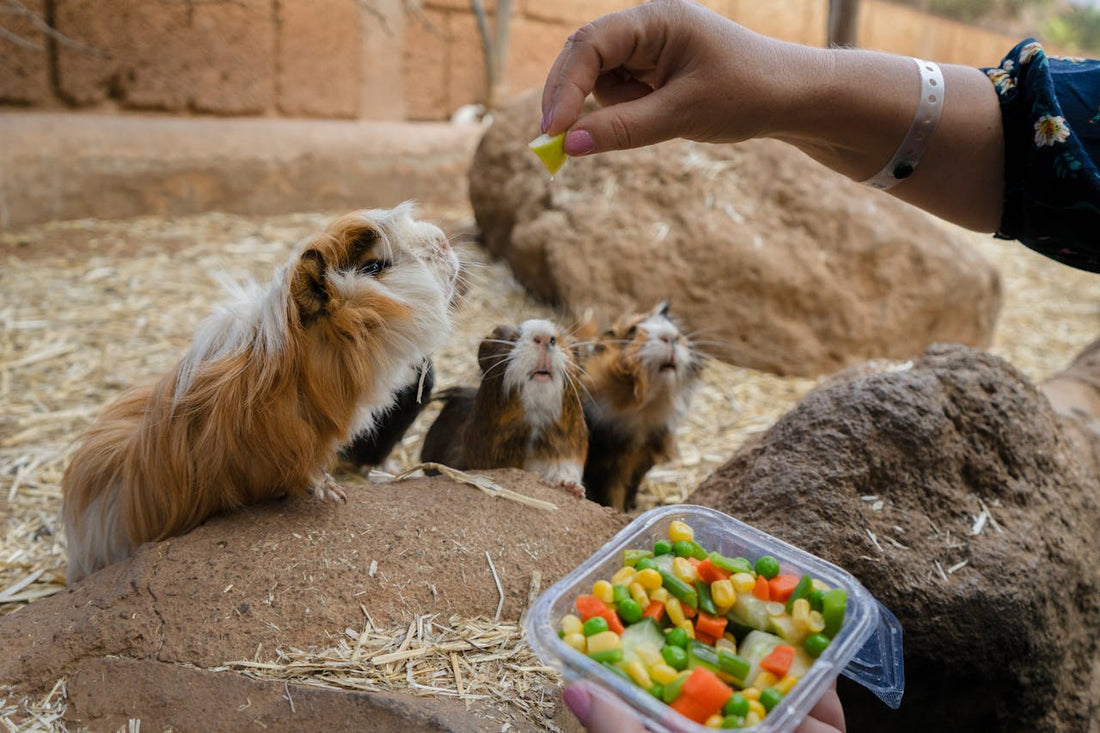The Best Foods for Guinea Pigs

Guinea pigs are charming, sociable creatures that make delightful pets. However, as a responsible owner, providing them with the right nutrition is crucial to ensure they lead healthy and happy lives. In this article, we’ll explore the best foods for guinea pigs, highlighting essential nutrients and dietary needs.
Understanding Guinea Pig Nutrition
Guinea pigs are herbivores, which means their diet should primarily consist of plant-based foods. Their digestive systems are designed to process high-fiber diets, and they have specific nutritional requirements that must be met to prevent health issues.
Key Nutritional Needs:
- Fiber: Essential for healthy digestion; it helps prevent gastrointestinal problems.
- Vitamin C: Unlike many animals, guinea pigs cannot produce their own vitamin C and need it from their diet to prevent scurvy.
- Low Sugar and Fat: Their diet should be low in sugar and fat to avoid obesity and related health issues.
Recommended Foods for Guinea Pigs
-
Hay: The Foundation of Their Diet
- Timothy Hay: This is the best option for adult guinea pigs. It's high in fiber and low in calcium, making it ideal for maintaining a healthy weight.
- Orchard Grass and Meadow Hay: These hays are also good alternatives that provide variety and essential nutrients.
- Alfalfa Hay: Best suited for young guinea pigs, pregnant or nursing mothers, as it is higher in protein and calcium. However, it should be fed in moderation to adults.
-
Fresh Vegetables: A Daily Treat Incorporating a variety of fresh vegetables into your guinea pig’s diet is essential. Here are some great options:
- Bell Peppers: High in vitamin C, they are a favorite among guinea pigs. Any color will do!
- Leafy Greens: Romaine lettuce, kale, and cilantro are nutritious choices. Avoid iceberg lettuce as it contains little nutritional value.
- Carrots: These can be given in moderation due to their higher sugar content, but they are a tasty treat that most guinea pigs enjoy.
-
Pellets: Nutritional Supplements Look for high-quality guinea pig pellets that are fortified with vitamin C. Avoid mixes with seeds and nuts, as they can lead to obesity and dental issues. A daily serving of pellets (about 1/8 cup) is sufficient for adults.
-
Fruits: Occasional Treats Fruits should be treated as occasional snacks due to their sugar content. Suitable fruits include:
- Apples (without seeds)
- Blueberries
- Strawberries
Foods to Avoid
It’s essential to know which foods to keep away from your guinea pig to ensure their health:
- Iceberg Lettuce: It has little nutritional value and can cause diarrhea.
- Potatoes: Toxic to guinea pigs and should never be fed.
- Onions and Garlic: These can be harmful to their health.
- High-Sugar Foods: Candy, cookies, and sugary fruits can lead to obesity and health issues.
Final Thoughts
Feeding your guinea pig a well-balanced diet is key to their overall health and happiness. Providing a variety of hay, fresh vegetables, high-quality pellets, and the occasional fruit treat will ensure your furry friend thrives. Regularly monitor their health and consult your veterinarian for personalized dietary recommendations.
